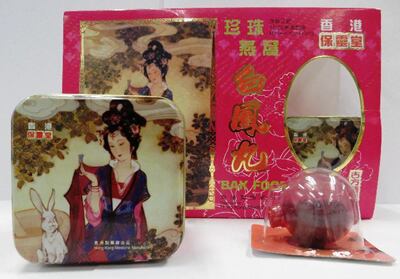Singapore-based Eu Yan Sang International is a 130-year-old firm with more than 100 TCMs in its portfolio including Bak Foong Pills – a generic name for one of the most popular TCMs and which UK regulators busted for heavy metal contamination recently.
“This is a classic case where a contaminated product manufactured in China has been pulled up by the regulators and then there are news stories and the whole TCM sector is tarnished. It is a shame,” Eu Yan Sang CEO Richard Eu, told us.
“We spend a lot of financial resources on quality control and research and development at our manufacturing facilities in Malaysia and Hong Kong. Our products go through stringent tests and comply with health regulations imposed by relevant health authorities in the countries where our products are made available."
"Now, we have to deal with the negative perception because there is a lot of ignorance out there on TCM – that TCM products are not always the best quality.”
Listed on the Singapore stock exchange in 2010, Eu Yan Sang achieved sales of $327m in Singapore dollars in 2012 (€194m) and has begun targeting western markets with its first move into Australian territory. It currently does business in China, Hong Kong, Malaysia, Singapore and Macau.
The firm is Good Manufacturing Practices (GMP)-certified by the likes of the strict Therapeutic Goods Administration (TGA) in Australia.
Overcoming negative perceptions
Bak Foong Pills are typically used by women for problems like menstrual cramps.
There are multiple manufacturers - in the same way there are many manufacturers of say vitamin C – and quality varies.
“We are making noise about this because there is a big confusion – especially in western markets about these kinds of products,” Eu said.
“Not all TCM manufacturers are created equal and it is not fair that all are considered that way.”
“But it is mostly about a lack of information and we are going to be making more noise. Just because the products share Chinese names doesn’t mean they are all made in China, or to the same standard.”
Asked if the Chinese government was doing enough to address QC concerns in TCMs, Eu responded, “it’s a big industry and difficult to police.”

Fed up
After the latest UK incident, Simon Mills, secretary of the European Scientific Cooperative on Phytotherapy (ESCOP) said the local industry was wearying of the Chinese problem.
“This is a long term problem that does not seem to be getting any better,” Mills said.
“I am sure the MHRA (Medicines and Healthcare products Regulatory Agency) is as focused on this as they can be but frankly we are all fed up with this - it is almost unpoliceable - no QA/QC regime can manage stuff that does not go through any identifiable channel – and constantly undermines the rest of the herbal sector.”
“Even executing the head of the regulator in China does not seem to be able to stem this stuff.”
